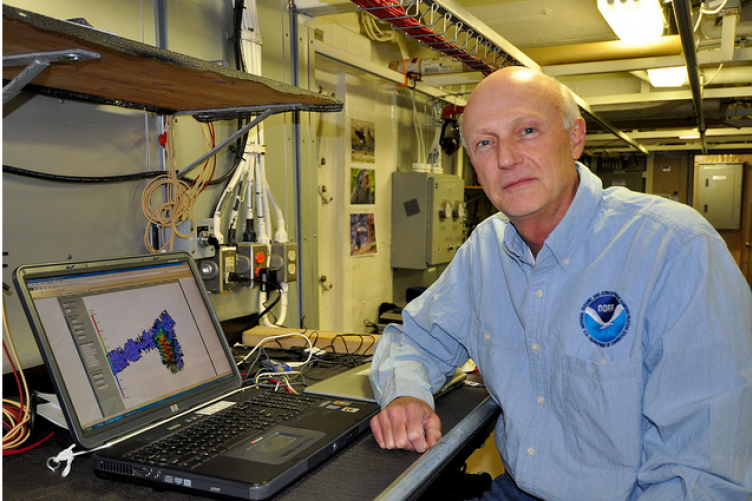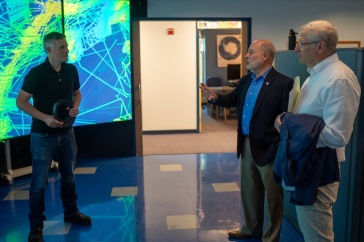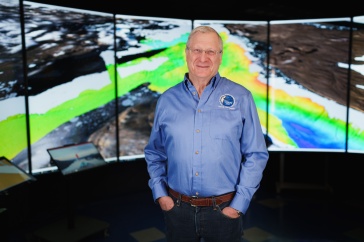
Andy Armstrong, co-director for the NOAA-UNH Joint Hydrographic Center, has been awarded a Department of Commerce Gold Medal by the National Oceanic and Atmospheric Administration (NOAA) for his contributions to delineate the U.S. extended continental shelf — a maritime region that could possess valuable resources and habitats for marine life.
The gold medal recognizes Armstrong’s excellence in seafloor mapping and data science initiatives that will help the U.S. Extended Continental Shelf (ECS) Program to define the geographical limits of this zone that begins more than 200 nautical miles offshore.

“Andy brings the skills and experience of a seasoned mariner and real-world hydrographer to our academic world,” says Larry Mayer, director for the UNH Center for Coastal and Ocean Mapping. “He has been a steady guiding force leading us in not only in our Extended Continental Shelf activities but has provided leadership and guidance for all we do. We are thrilled that NOAA has also recognized his significant contributions to the future of hydrography and ocean mapping.”
Multiple agencies are involved in the U.S. ECS project, and scientists like Armstrong — who is also a retired NOAA captain — are providing the information necessary to help the U.S. establish its sovereign rights over the natural resources in the water column, the seabed and subsoil. Based on preliminary studies, the U.S. ECS program estimates that the size of this region is at least one million square kilometers, or about twice the size of California.

The NOAA Gold Medal is the latest in Armstrong’s awards recognizing his scientific achievements; he was inducted into the Hydrographer Hall of Fame in 2019 by the Hydrographic Society of America, and there is a basin in the Gulf of Mexico that now bears his name.
“I feel very honored to be recognized as part of NOAA’s effort on the U.S. Extended Continental Shelf Project and proud of the work we have accomplished for the nation,” Armstrong says. “Much of that effort was carried out here at UNH in the Center for Coastal and Ocean Mapping and Joint Hydrographic Center. My UNH colleagues on the project have been essential to its success and really deserve much of the credit.”
The Institute for the Study of Earth, Oceans, and Space (EOS) is UNH's largest research enterprise, comprising six centers with a focus on interdisciplinary, high-impact research on Earth and climate systems, space science, the marine environment, seafloor mapping, and environmental acoustics. With more than $60 million in external funding secured annually, EOS fosters an intellectual and scientific environment that advances visionary scholarship and leadership in world-class research and graduate education.
-
Written By:
Rebecca Irelan | Institute for the Study of Earth, Oceans, and Space | rebecca.irelan@unh.edu | 603-862-0990



















































